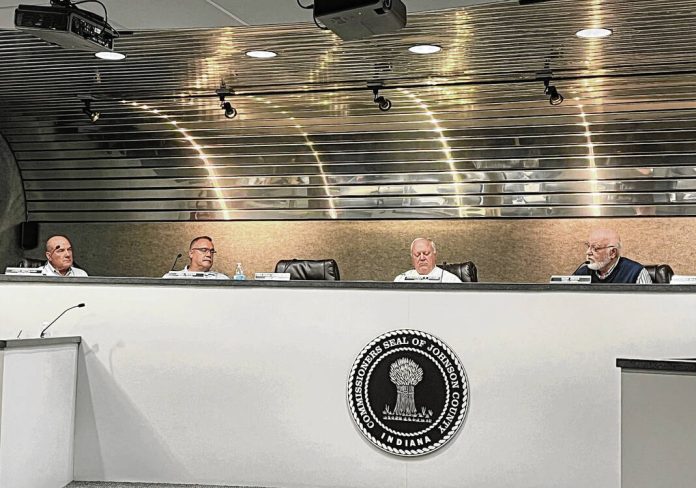The Johnson County Council approved a $108 million budget on Oct. 9 for 2024 with $47 million allocated towards the general fund.
The newly adopted general fund marks an increase from last year’s $40 million allocation, a move partially credited to inflation, said Jonathan T. Myers, county council president and District 3 representative.
Myers conducted his own study regarding how inflation affected Johnson County residents and that inflation was a primary point-of-observation when constructing the budget.
“We did consider the cost of living adjustment,” Myers said. “My research early on in the year and then throughout the summer determined that it was wavering. It started out very low around June and July, but we know that the inflation had been higher than that. Since then, it has been trending up again, so I think we hit it pretty well in that regard. I think the COLA for Social Security hit at a very bad time for seniors.”
A major facet of the budget was dedicated to trying to raise the county employees’ wages enough to match the surrounding counties and counties with similar populations. Johnson County is currently the 11th most populous county in the state, Myers said.
“For so long now our employees have not been paid accordingly,” Myers said.
He feels the council has been doing a good job adjusting the county employee pay scale over the past couple years.
In August 2022, the council approved a 0.2% Economic Development Income Tax, also known as an EDIT. The tax increase has provided the council with additional funds for the budget.
Approximately $12 million more money has been brought in with EDIT, but a portion of the funds is redistributed into communities like Greenwood, Franklin, Edinburgh and Bargersville, Myers said.
“We only retain about $4.5 to $5 million at the county level,” he said. “Our intent was to use that for roads. We are considering using that amount of revenue to make a bond payment because our needs are pretty great in regard to roads. As we have limited revenue for that, this is what we are considering.”
Because of the local traffic increase, and the work on Interstate 69 causing problems in the northwest corner of Johnson County, Myers said that a few roads in particular have become a priority for the council in 2024.
“We are a growth county and our traffic has increased quite a bit,” he said. “We’ve experienced a population growth that is one of the highest in the state. Our main focus is going to be on the Smith Valley Road improvements and all of those roads from White River Township.”
Another component of the approved budget was the increased funding for the sheriff’s office. Johnson County Sheriff Duane Burgess said this is a necessity, as the agency was having difficulty hiring new officers and retaining employees.
Burgess said employee hiring and retention is a nationwide problem agencies like Indiana State Police and Indianapolis Metropolitan Police Department are experiencing the same issues.
He said it is important every year to see how the department’s wages stack up with other agencies.
“We’ve been very fortunate at the sheriff’s office,” Burgess said. “We’ve got a lot of longtime members. I don’t want to see those folks leave. I don’t want to lose them because it is going to cost me more money in the long run to train new officers. The council has been very workable with everything that we are doing. We communicate with the commissioners often to make sure everyone is aware of what we are doing at the sheriff’s office.
“We’re going to think outside the box and see what we can take to the table, but we have got to think about the taxpayers as well.”
The county council is committed to prioritizing public safety, Myers said. He hopes that they continue to emphasize the importance of the several departments that contribute to the county’s protection.
The sheriff’s office was not the only area of the budget that featured wage increases. The Johnson County Commissioners also saw a pay raise, a move which Myers said was justifiable.
“Our commissioners are some of the lowest-paid commissioners in the state,” he said. “They one of the hardest-working group of commissioners in the state. These people — and I am not saying this lightly — they are very dedicated. They put a lot of time in and we could not ask for better people. They are grossly underpaid.”





